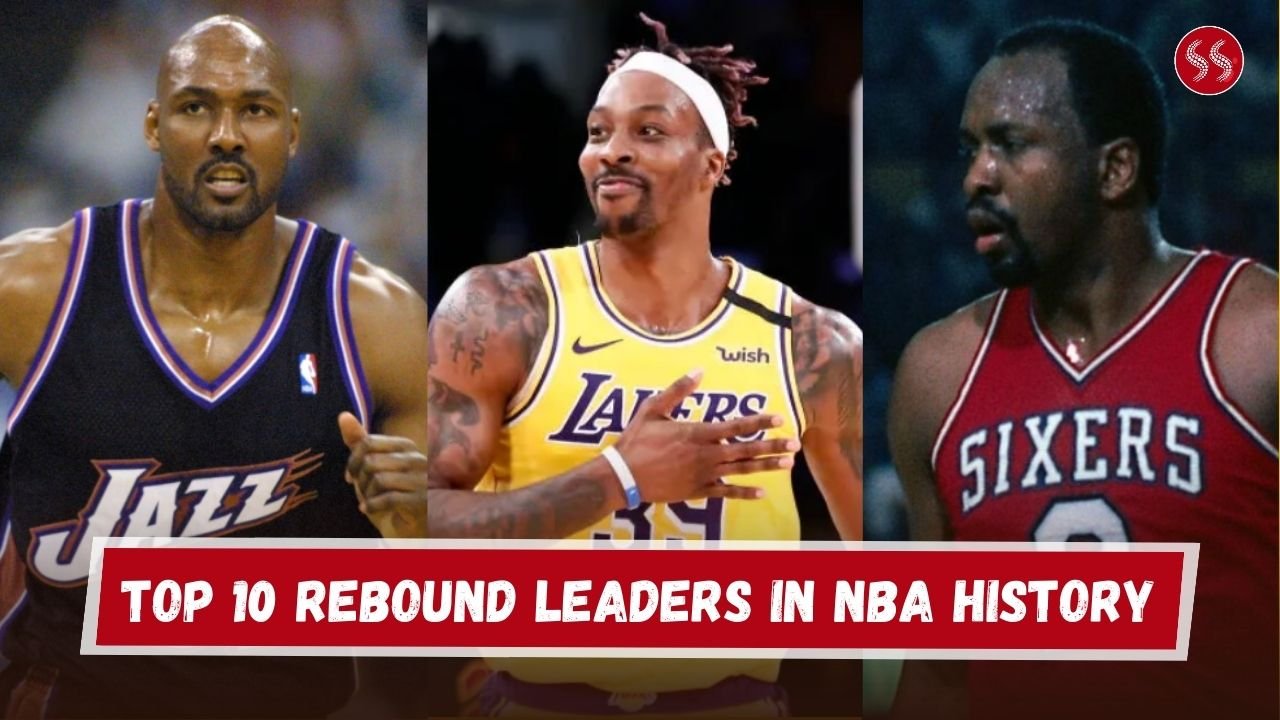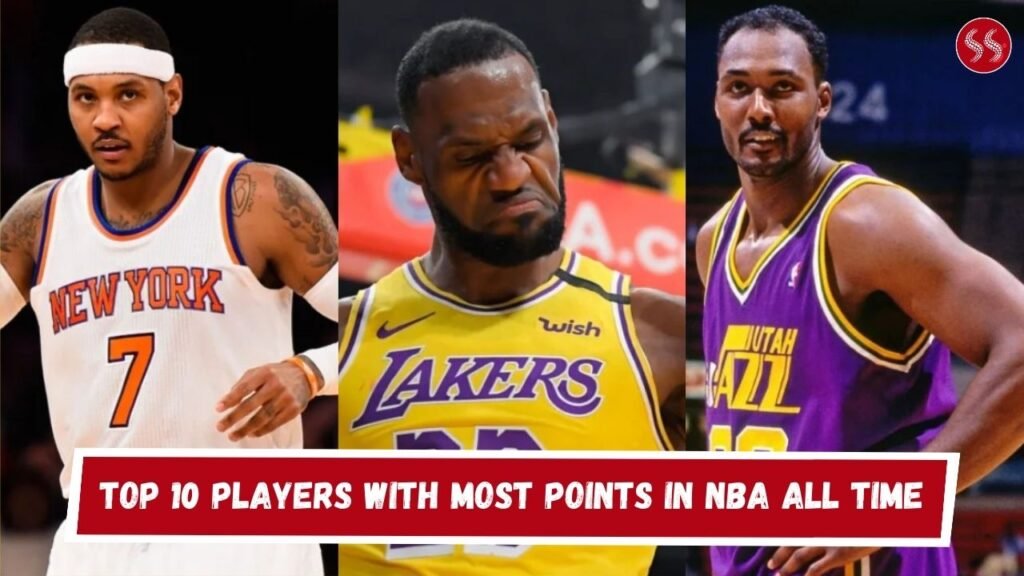Rebounding is one of the most crucial aspects of basketball, directly influencing a team’s ability to control the game. Great rebounders not only secure possession for their teams but also create second-chance opportunities and shut down the opposition’s offense. Over the years, the Rebound Leaders in NBA History have been defined by their relentless efforts and ability to dominate the boards.
Here’s a look at Top 10 Rebound Leaders in NBA History :
10. Dwight Howard
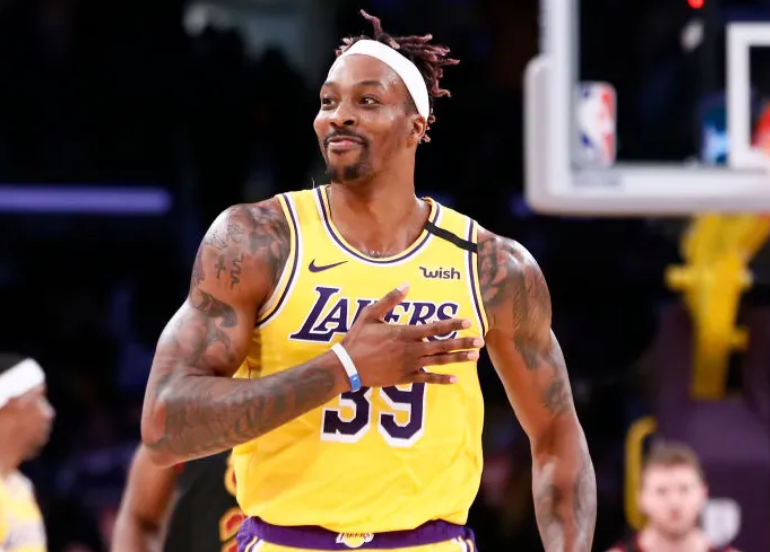
Dwight Howard is one of the most dominant centers to ever play in the NBA, known for his athleticism and ability to control the paint. As one of the Rebound Leaders in NBA History, Howard’s rebounding and shot-blocking ability made him an unstoppable force. With his powerful frame and relentless motor, Howard has secured his place among the greatest rebounders in NBA history.
| Team | Rebounds | Key Achievement |
|---|---|---|
| Orlando Magic, Los Angeles Lakers, Houston Rockets | 14,627 | 3-time Defensive Player of the Year, 8-time All-Star |
READ MORE: Top 10 Greatest Female Tennis Players
9. Kevin Garnett
Kevin Garnett was a versatile player who played with intensity on both ends of the floor. As one of the top Rebound Leaders in NBA History, Garnett’s rebounding ability was one of his strongest attributes, as he consistently grabbed boards on both offense and defense. Garnett’s leadership, defensive skills, and rebounding presence helped the Boston Celtics win the NBA Championship in 2008, cementing his legacy as one of the top players in NBA history.
| Team | Rebounds | Key Achievement |
|---|---|---|
| Minnesota Timberwolves, Boston Celtics | 14,662 | 1 NBA Championship, 1 MVP, 1 Finals MVP |
8. Robert Parish
Robert Parish, a Hall of Famer, is remembered as one of the greatest centers to play in the NBA. As one of the most significant Rebound Leaders in NBA History, Parish was an exceptional rebounder who used his size and positioning to grab boards. His consistency over 21 seasons helped him reach the top of the NBA’s all-time rebounding list.
| Team | Rebounds | Key Achievement |
|---|---|---|
| Boston Celtics | 14,715 | 3 NBA Championships, 9-time All-Star |
7. Karl Malone
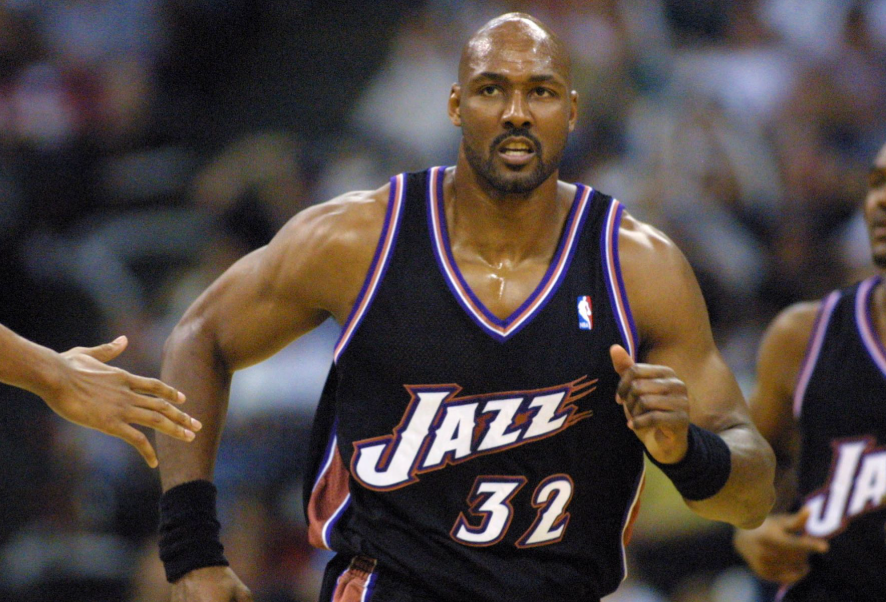
Karl Malone, known as “The Mailman,” was one of the most durable and consistent players in NBA history. His rebounding ability was a major factor in his success, as he was able to secure key boards during crucial moments. As one of the all-time Rebound Leaders in NBA History, Malone’s combination of size, strength, and determination allowed him to dominate the glass, and his longevity helped him become one of the league’s all-time greats.
| Team | Rebounds | Key Achievement |
|---|---|---|
| Utah Jazz | 14,968 | 2-time MVP, 14-time All-Star |
6. Tim Duncan
Tim Duncan, often referred to as the best power forward in NBA history, had an incredible combination of skill and basketball IQ. His rebounding ability was vital to the San Antonio Spurs’ success, especially during their five championship wins. Duncan was known for his fundamentals, and his ability to grab key rebounds in tight moments made him an all-time great among the Rebound Leaders in NBA History.
| Team | Rebounds | Key Achievement |
|---|---|---|
| San Antonio Spurs | 15,091 | 5 NBA Championships, 2 MVPs, 3 Finals MVPs |
ALSO SEE: Top 10 UFC Fighters of All Time
5. Moses Malone

Moses Malone was one of the most dominant centers of the 1970s and 1980s. Known for his relentless work ethic and exceptional rebounding, Malone could control both ends of the floor with his ability to snag boards. As one of the all-time Rebound Leaders in NBA History, his physical play and outstanding career earned him three MVP awards and an NBA championship in 1983.
| Team | Rebounds | Key Achievement |
|---|---|---|
| Houston Rockets, Philadelphia 76ers | 16,212 | 3 MVPs, 1 NBA Championship (1983) |
4. Elvin Hayes
Elvin Hayes was a key player for the Houston Rockets and the Washington Bullets, excelling both as a scorer and a rebounder. As one of the top Rebound Leaders in NBA History, his size, strength, and timing made him one of the most dominant forces on the boards during his era. Hayes was a fixture in the post-season, contributing heavily to his team’s success, and he remains one of the top rebounders in NBA history.
| Team | Rebounds | Key Achievement |
|---|---|---|
| Houston Rockets, Washington Bullets | 16,279 | 12-time All-Star, NBA Champion (1978) |
3. Kareem Abdul-Jabbar
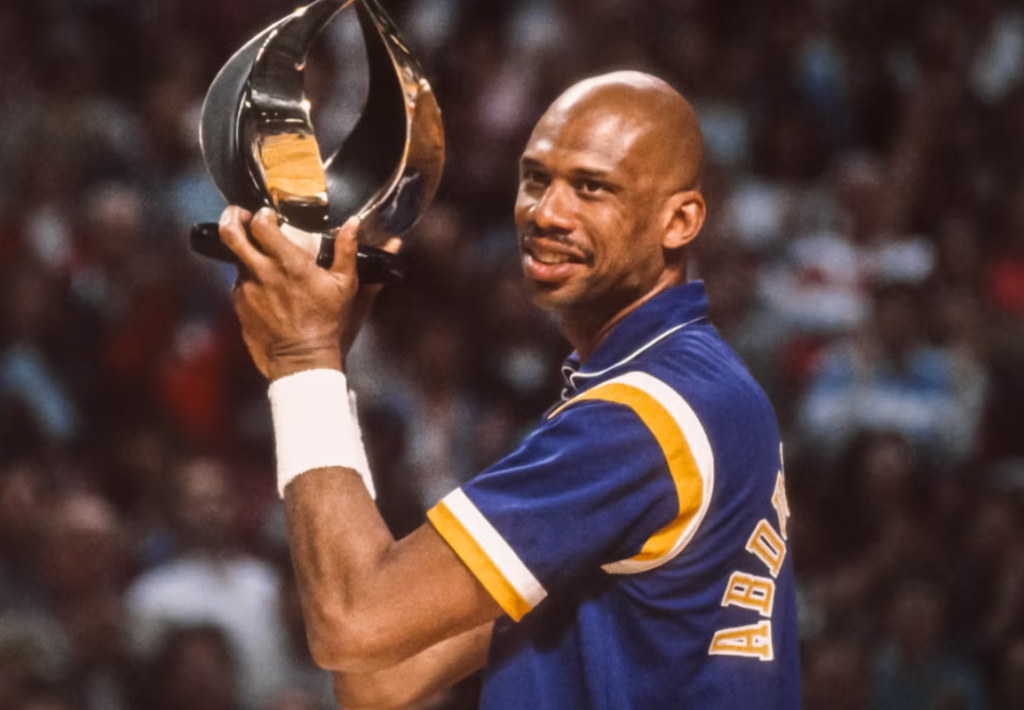
Kareem Abdul-Jabbar is best known for his skyhook shot, but his rebounding ability was just as crucial to his success. Throughout his 20-year career, Abdul-Jabbar consistently grabbed rebounds, especially in critical moments. As one of the greatest Rebound Leaders in NBA History, his size, combined with exceptional basketball IQ, allowed him to dominate the glass and make an impact on both ends of the floor.
| Team | Rebounds | Key Achievement |
|---|---|---|
| Milwaukee Bucks, Los Angeles Lakers | 17,440 | 5 MVPs, 6 NBA Championships, 10 All-Defensive selections |
2. Bill Russell
Bill Russell is widely regarded as one of the best defenders and rebounders in NBA history. A key figure in the Boston Celtics’ dynasty, Russell’s ability to control the boards and impact the game defensively helped him win 11 NBA championships. His size, timing, and competitive spirit made him a dominant presence in the paint, especially during the Celtics’ championship runs. Russell is one of the all-time Rebound Leaders in NBA History.
| Team | Rebounds | Key Achievement |
|---|---|---|
| Boston Celtics | 21,620 | 11 NBA Championships, 5 MVPs |
1. Wilt Chamberlain
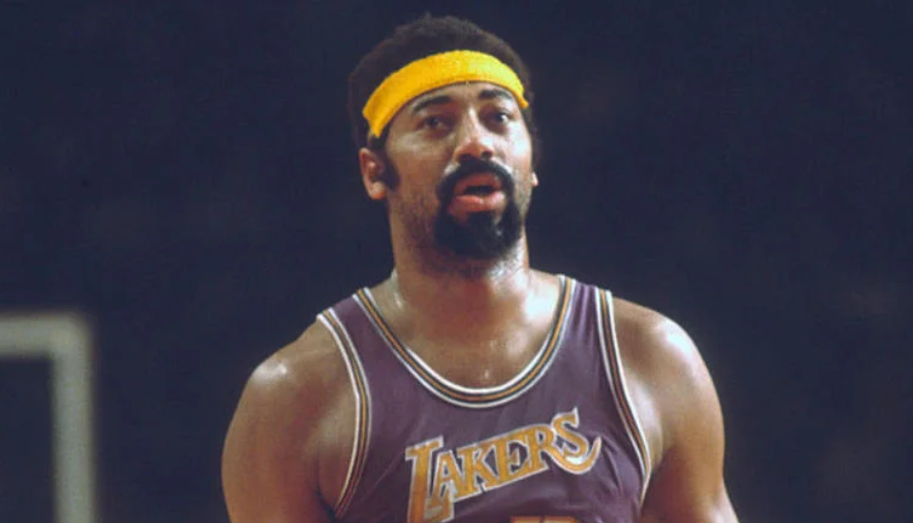
Wilt Chamberlain stands alone as the greatest rebounder in NBA history. With an incredible career average of 22.5 rebounds per game, Chamberlain was a force of nature on the boards. His size, athleticism, and tenacity allowed him to pull down rebounds at a rate unmatched by any player before or after him. As the top Rebound Leader in NBA History, Chamberlain’s ability to dominate the paint both offensively and defensively has left an indelible mark on NBA history.
| Team | Rebounds | Key Achievement |
|---|---|---|
| Philadelphia/SF Warriors, Philadelphia 76ers, Los Angeles Lakers | 23,924 | 20.5 RPG career average, 55.4 RPG in 1960-61 |
SEE MORE:


